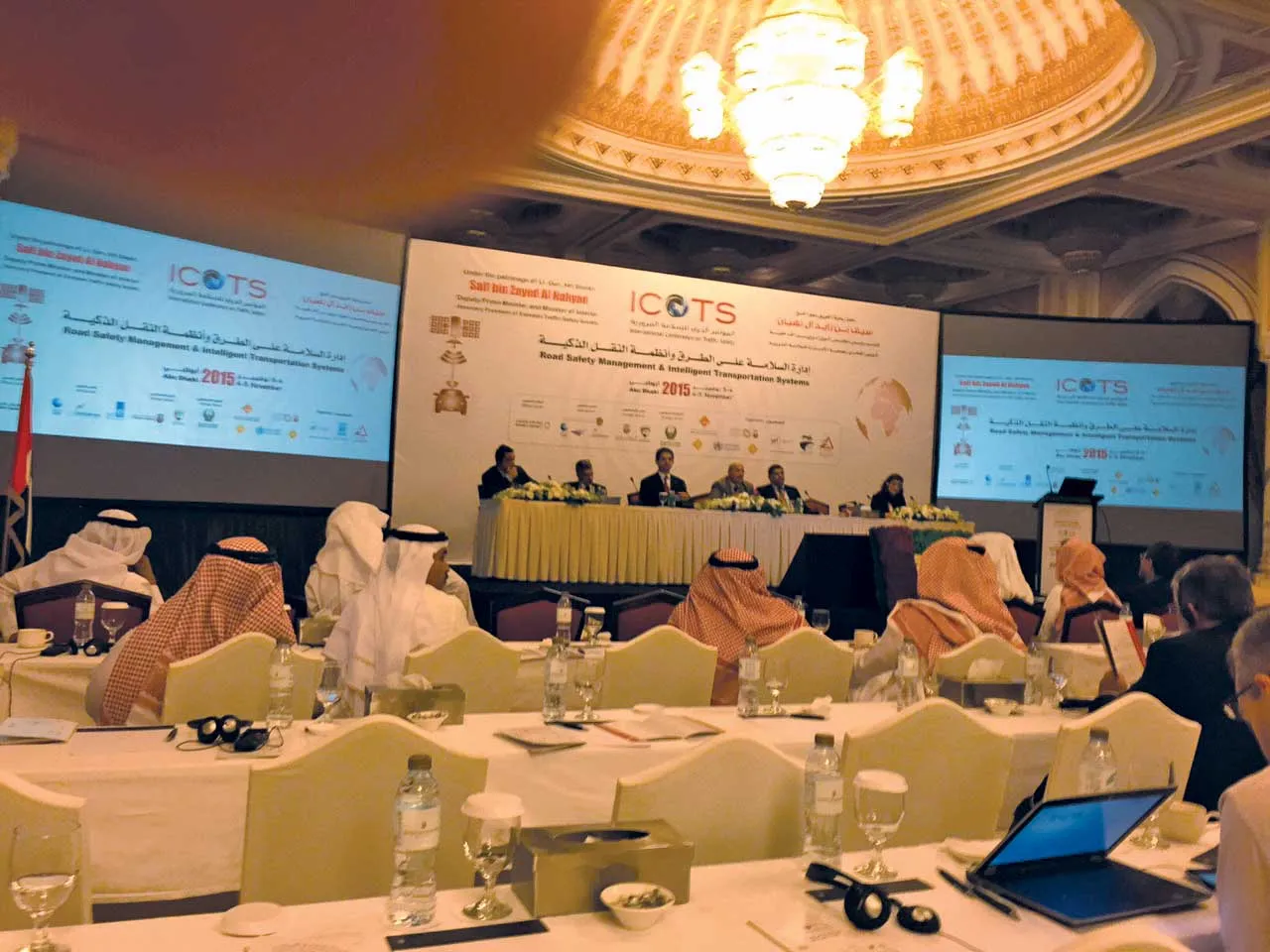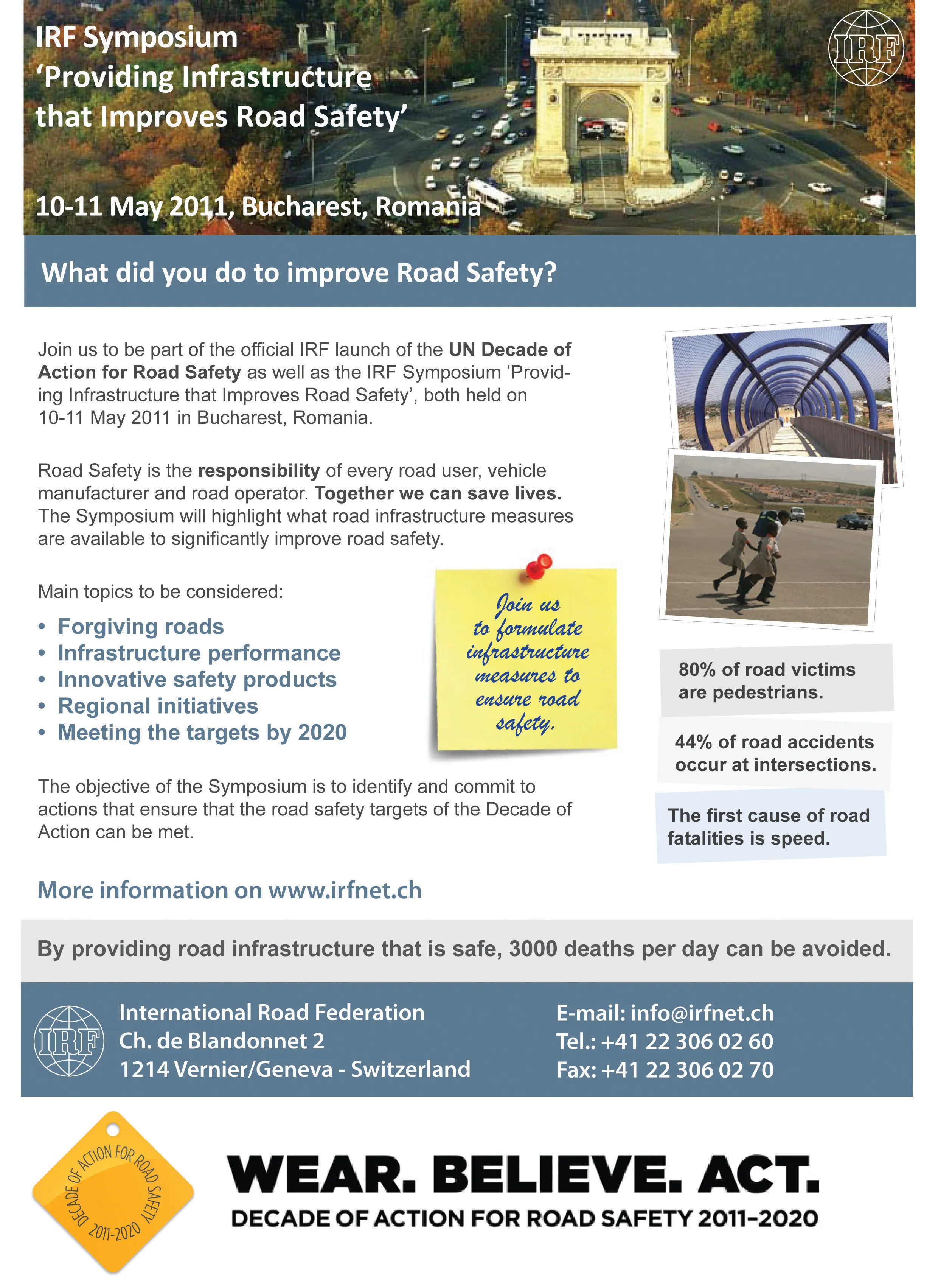Dr Rahman spoke about the potential role of Intelligent Transportation Systems (ITS), as a technology enabler, for improving road safety and thereby achieving the goals of the Decade of Action
Dr Rahman discussed the role of ITS in improving the management and planning of road networks, in data collection, for developing evidence based interventions, speed management and better trauma care through timely care to accident victims during the golden hour.
Governments, said Dr Rahman, can play an importan
January 5, 2016
Read time: 2 mins

Dr Rahman spoke about the potential role of Intelligent Transportation Systems (ITS), as a technology enabler, for improving road safety and thereby achieving the goals of the Decade of Action
Dr Rahman discussed the role of ITS in improving the management and planning of road networks, in data collection, for developing evidence based interventions, speed management and better trauma care through timely care to accident victims during the golden hour.
Governments, said Dr Rahman, can play an important role in stimulating the diffusion of ITS by incorporating ITS into the transport policy, speeding up harmonisation and setting of standards, and stimulating education on ITS.
1201 IRF Geneva addresses World Congress of Traffic Medicine
Dr Rahman gave the keynote address at the 26th World Congress of Traffic Medicine in Doha.
He pointed out that in 2015, the midpoint of the Decade of Action for Road Safety, the situation with regards to the quality and availability of road related data and information remains worrisome; enforcement of traffic rules and laws remain weak. While road safety audits are being carried out, their value in improving road safety remains questionable, primarily because of the way they are being conducted. To date, only a few countries have legislation that comes close to the best practice legislation for addressing the risk factors, such as speed limits, drink-driving laws, wearing of helmets, seat belts, and using child restraint systems. Equally worrisome is that few countries are applying the UN vehicle safety standards, or have adequate post-crash response systems.
To correct the situation, Dr Rahman urged for action with regard to investment in better and reliable road related data collection, capacity augmentation of relevant authorities and organisation to deliver their tasks and responsibilities and sustainable finance and funding for road safety activities.
Dr Rahman discussed the role of ITS in improving the management and planning of road networks, in data collection, for developing evidence based interventions, speed management and better trauma care through timely care to accident victims during the golden hour.
Governments, said Dr Rahman, can play an important role in stimulating the diffusion of ITS by incorporating ITS into the transport policy, speeding up harmonisation and setting of standards, and stimulating education on ITS.
Dr Rahman gave the keynote address at the 26th World Congress of Traffic Medicine in Doha.
He pointed out that in 2015, the midpoint of the Decade of Action for Road Safety, the situation with regards to the quality and availability of road related data and information remains worrisome; enforcement of traffic rules and laws remain weak. While road safety audits are being carried out, their value in improving road safety remains questionable, primarily because of the way they are being conducted. To date, only a few countries have legislation that comes close to the best practice legislation for addressing the risk factors, such as speed limits, drink-driving laws, wearing of helmets, seat belts, and using child restraint systems. Equally worrisome is that few countries are applying the UN vehicle safety standards, or have adequate post-crash response systems.
To correct the situation, Dr Rahman urged for action with regard to investment in better and reliable road related data collection, capacity augmentation of relevant authorities and organisation to deliver their tasks and responsibilities and sustainable finance and funding for road safety activities.









